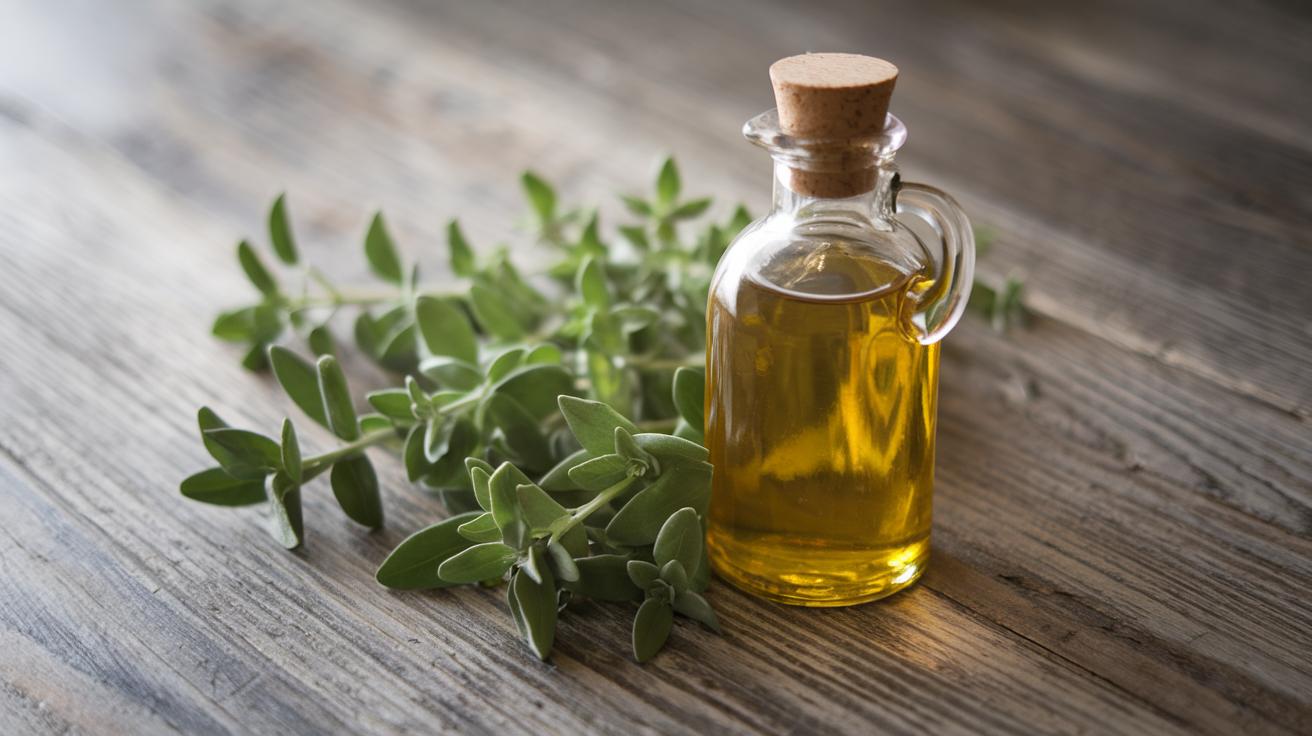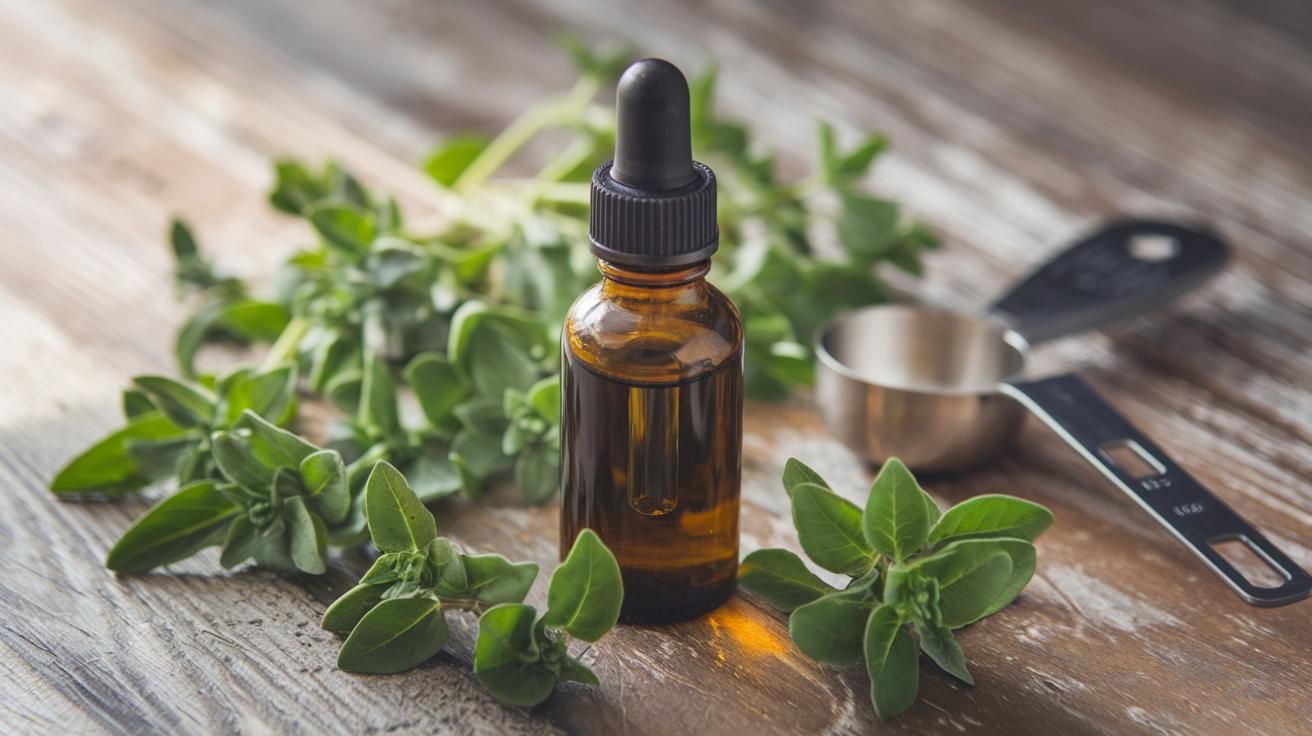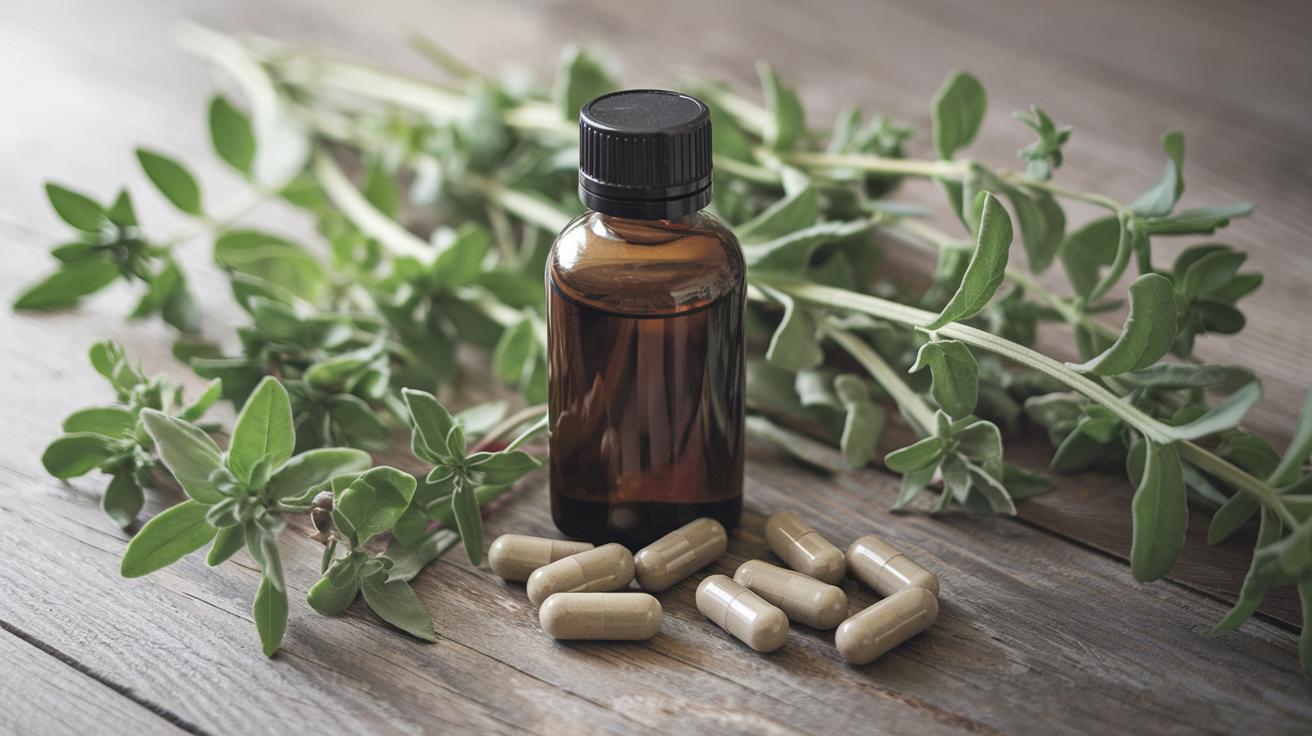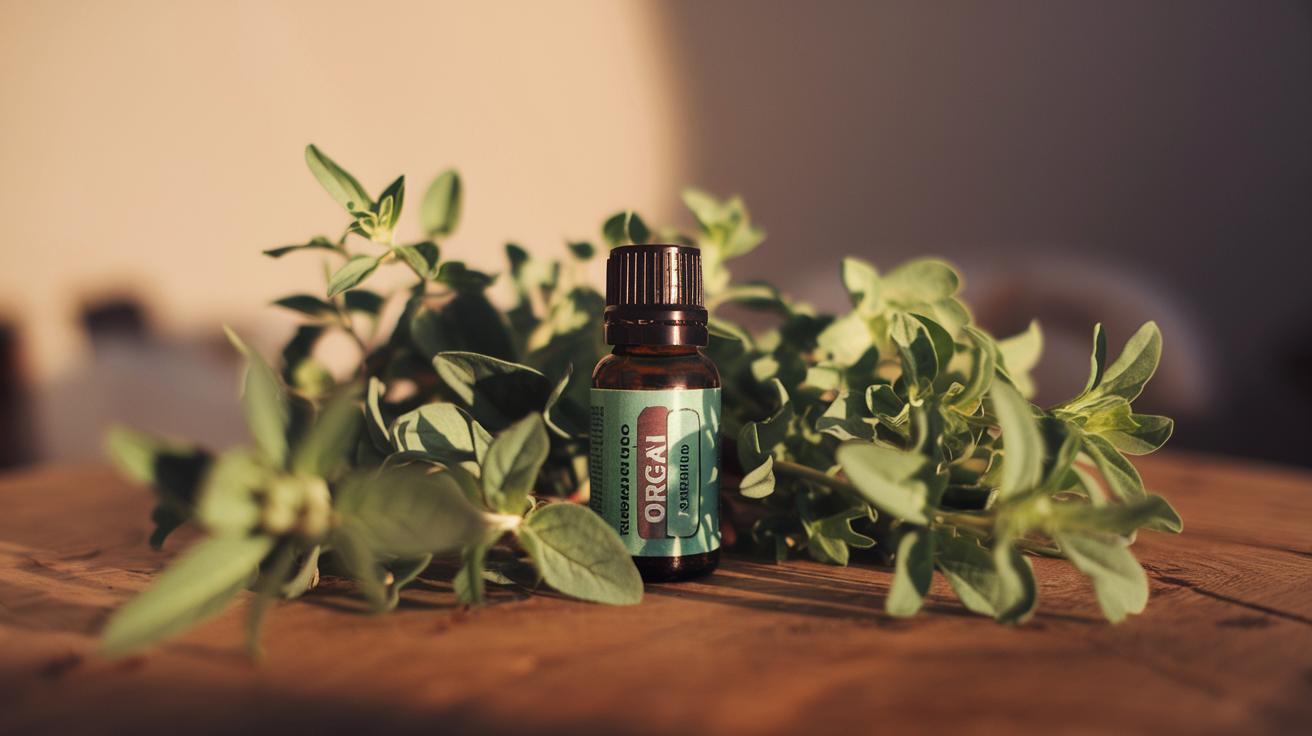Could the humble herb oregano be a formidable ally against bacterial infections? As research unveils its potential, oregano emerges as more than a mere culinary staple. Oregano essential oil, derived from Origanum vulgare, exhibits promising antimicrobial properties, providing antibacterial, antifungal, antiviral, anti-inflammatory, antioxidant, and analgesic effects. Utilized for over 2,500 years in traditional medicine, this natural remedy now stands under scientific scrutiny. Could oregano be the key to combatting antibiotic resistance and enhancing holistic health? Explore the profound benefits and possibilities of using oregano as a natural antibiotic.
Understanding Oregano's Antibiotic Properties

For over 2,500 years, oregano, particularly its essential oil derived from Origanum vulgare, has been utilized in folk medicine for its medicinal properties. Traditionally employed in various cultures, oregano was revered for its capability to address infections and support the immune system. Its use as an antibiotic highlights its potential as a natural remedy, especially in holistic health practices that favor plant-based solutions over synthetic chemicals.
Scientific research substantiates oregano's efficacy as a natural antibiotic. Studies have demonstrated its antimicrobial properties, showing effectiveness against several bacterial strains. This is attributed to its rich composition of compounds such as carvacrol and thymol, which exhibit strong antibacterial and antifungal activities. These findings suggest that oregano can play a significant role in combating bacterial overgrowth and infections, providing a natural alternative to conventional antibiotics.
One notable advantage of using oregano as a natural antibiotic is its potential to reduce antibiotic resistance. Unlike conventional antibiotics, which can contribute to the development of resistant bacterial strains, oregano's broad-spectrum antimicrobial actions do not exert the same selective pressure. This reduces the likelihood of resistance development. Additionally, oregano oil may preserve beneficial gut bacteria, thereby maintaining gut health.
- Antibacterial
- Antifungal
- Antiviral
- Anti-inflammatory
- Antioxidant
- Analgesic
Health Benefits of Using Oregano Oil

Oregano oil offers a range of health benefits, particularly in the areas of digestive support and inflammation management. It has shown effectiveness in alleviating symptoms associated with Small Intestinal Bacterial Overgrowth (SIBO) and heartburn. The oil works by relaxing gastrointestinal muscles and balancing gut flora, which aids in digestion. Furthermore, its anti-inflammatory properties are beneficial for managing chronic conditions such as Inflammatory Bowel Disease (IBD), providing relief and improving quality of life for individuals affected by these ailments.
The antioxidant properties of oregano oil contribute significantly to its health benefits. By reducing oxidative damage, oregano oil can help manage cholesterol levels, potentially lowering the risk of cardiovascular diseases. Antioxidants neutralize free radicals, which are known to contribute to chronic diseases and aging. This property makes oregano oil an appealing option for those seeking to maintain their health through natural means.
Oregano oil may also ease the side effects of certain medications, including those used in chemotherapy and treatments for chronic conditions like arthritis. Its ability to alleviate these side effects makes it a valuable adjunct in medical treatments, offering a natural means to enhance patient comfort and well-being. This potential is particularly advantageous for individuals who experience significant discomfort from their prescribed medications.
In holistic and alternative medicine, oregano oil is regarded as a potent natural remedy. Practitioners in these fields value its comprehensive health benefits, often recommending it as part of a broader wellness strategy. The oil's multifaceted therapeutic effects align well with holistic approaches that emphasize natural, whole-body health solutions. For those exploring alternative medicine, oregano oil presents a compelling option due to its broad spectrum of benefits and relative safety when used appropriately.
| Benefit | Description |
|———————–|—————————————————————————–|
| Digestive Support | Alleviates symptoms of SIBO and heartburn by relaxing muscles and balancing gut flora. |
| Inflammation Management | Helps manage conditions like IBD with anti-inflammatory properties. |
| Antioxidant Effects | Reduces oxidative damage and may lower cholesterol levels. |
| Medication Side Effects | Eases side effects from chemotherapy and arthritis treatments. |
| Holistic Remedy | Widely used in alternative medicine for its broad health benefits. |
| Cardiovascular Health | Supports heart health through antioxidant actions and potential cholesterol management. |
How to Use Oregano Oil as a Natural Antibiotic

Oregano oil is versatile in its application methods, providing options for both oral and topical use. When ingested, it should be mixed with a drink such as milk or juice to mitigate its potency. For topical use, dilute the oil with a carrier oil, like coconut or olive oil, to avoid skin irritation. This diluted mixture can be applied to areas of concern, such as inflamed skin or minor wounds. Its ability to combat respiratory infections is enhanced through inhalation. By adding a drop of oregano oil to steaming water, the steam inhaled can provide relief from respiratory symptoms.
Dosage is crucial when using oregano oil as a natural antibiotic. For internal use, the recommended dosage is approximately 600 milligrams daily, which can be taken in one or two doses. This dosage is effective for maintaining the oil's antimicrobial benefits while minimizing the risk of adverse effects. Consistent use at this dosage supports the body's ability to fight bacterial infections naturally and can be incorporated into a daily health regimen.
Safety considerations are paramount when using oregano oil. It is potent and may cause side effects if not used properly. Pregnant and breastfeeding individuals should avoid oregano oil due to its strength. Individuals with allergies to Lamiaceae plants, such as mint or basil, should also exercise caution. Moreover, those taking blood thinners or scheduled for surgery should consult a healthcare professional prior to use. Importantly, oregano oil is not recommended for children due to its concentration and potential side effects.
- Oral: Mix with milk or juice.
- Topical: Dilute with a carrier oil.
- Inhalation: Add to steaming water for respiratory relief.
- Allergies: Avoid if allergic to Lamiaceae plants.
- Pregnancy: Not recommended during pregnancy or breastfeeding.
- Children: Not advised for use in children.
- Medication Interactions: Consult a professional if on blood thinners.
- Surgery: Avoid before surgical procedures.
Comparing Oregano Oil to Conventional Antibiotics

Oregano oil offers distinct advantages over conventional antibiotics, particularly in its potential to reduce antibiotic resistance. How does oregano oil reduce resistance? By employing a broad-spectrum antimicrobial approach that does not exert the selective pressure seen with traditional antibiotics, oregano oil minimizes the development of resistant strains. Additionally, unlike many conventional antibiotics, oregano oil has the potential to preserve beneficial gut bacteria. This preservation is crucial for maintaining gut health, which can be compromised by the indiscriminate nature of traditional antibiotics that often eliminate both harmful and beneficial bacteria.
What are the limitations of oregano oil as an antibiotic? While oregano oil demonstrates significant antimicrobial properties, its efficacy can vary based on the bacterial strain and concentration used. One challenge is its potency, which requires careful dosage management to avoid adverse effects. Furthermore, its comprehensive antimicrobial spectrum is still under investigation, and it may not be suitable for all types of infections. Therefore, while oregano oil serves as a promising natural alternative, it may not entirely replace conventional antibiotics for severe or systemic infections, highlighting the need for professional guidance in its use.
| Aspect | Oregano Oil | Conventional Antibiotics |
|———————–|—————————————————–|—————————————————|
| Resistance | Potentially reduces development of resistance | Often leads to resistant strains |
| Gut Health | Preserves beneficial bacteria | Can disrupt gut microbiota |
| Spectrum of Action | Broad-spectrum, varies by strain | Typically narrow or broad, depending on type |
| Dosage Management | Requires careful dosing | Standardized dosing |
| Suitability for Infections | Suitable for mild to moderate infections | Effective for a wide range of infections |
Expert Opinions and Testimonials on Oregano Oil Use

Healthcare experts recognize oregano oil as a potent natural remedy with a history spanning over 2,500 years in folk medicine. Its use is prevalent in holistic health practices due to its antimicrobial, anti-inflammatory, and antioxidant properties. Professionals advise caution, recommending consultation with a healthcare provider before integrating oregano oil into treatment regimens, particularly when combined with other medications. This precaution ensures safe use and mitigates any potential interactions or contraindications.
Users of oregano oil often share positive testimonials, citing benefits such as relief from respiratory infections, digestive issues, and minor skin irritations. Many individuals have reported noticeable improvements in their overall wellness, attributing these changes to the oil's natural healing properties. These anecdotal accounts align with its traditional applications and suggest its efficacy in contemporary alternative medicine practices.
- Consult with a healthcare professional before use.
- Use only 100 percent therapeutic-grade oregano oil for internal consumption.
- Dilute with carrier oil for topical applications.
- Avoid use during pregnancy or breastfeeding.
- Conduct a patch test to check for skin reactions.
Final Words
Delving into the antimicrobial prowess of oregano, particularly its essential oil, reveals a fascinating alternative to conventional antibiotics. With over 2,500 years of folk medicine use, oregano exhibits potent antibacterial, antifungal, and antiviral properties, supported by scientific studies highlighting its role in reducing antibiotic resistance.
Using oregano as an antibiotic offers promising advantages, including its potential to preserve gut health compared to traditional treatments. As scientific and holistic interest continues to grow, oregano oil stands as a compelling natural remedy. Its myriad benefits suggest a brighter future for those seeking alternative antimicrobial solutions.
FAQ
How to use oregano oil as an antibiotic?
A: To use oregano oil as an antibiotic, dilute with a carrier oil and apply topically, or ingest mixed with drinks. A typical dosage is around 600 milligrams daily, but consult a healthcare provider for personalized advice.
Can you take oregano oil and antibiotics together?
A: It is recommended to consult a healthcare professional before combining oregano oil with antibiotics, as interactions may occur. Individual health conditions and medications should be assessed to ensure safe usage.
What is the proper dosage of oregano oil for antibiotic purposes?
A: The standard internal dosage of oregano oil for antibiotic purposes is approximately 600 milligrams daily. Dosage may vary based on individual needs; consult a healthcare professional for specific guidance.
How do you take oregano oil by mouth?
A: Oregano oil can be ingested by mixing a few drops with water or juice. It's advisable to follow recommended dosages and consult a healthcare provider, especially for prolonged use.
What are the benefits of oregano oil for the skin?
A: Oregano oil offers several skin benefits, including antibacterial and antifungal properties. It can help manage skin infections and improve overall skin health. Dilution with a carrier oil is essential to prevent irritation.
How is oregano oil used to treat skin fungus?
A: Oregano oil can treat skin fungus by applying it topically, diluted with a carrier oil. Its antifungal properties aid in reducing fungal infections, but sensitivity tests are recommended.
How does oregano compare to antibiotics like amoxicillin?
A: Oregano oil may offer natural antimicrobial benefits with potentially fewer side effects and reduced antibiotic resistance risk compared to amoxicillin. However, its effectiveness varies, and conventional antibiotics might be necessary in some cases.
Can oregano cure an infection?
A: Oregano oil may help manage mild infections due to its antimicrobial properties. However, serious infections often require conventional medical treatment. Always consult a healthcare professional for appropriate treatment plans.
Is fresh oregano antibacterial?
A: Fresh oregano exhibits antibacterial properties, although not as concentrated as oregano oil. The essential oil contains potent compounds like carvacrol, effective against certain bacterial strains. Use fresh oregano as a dietary supplement for minor benefits.


